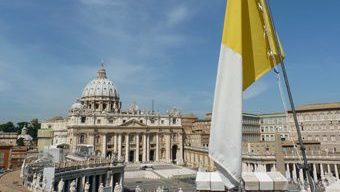The Secretariat for the Economy appointed Saturday Franco Dalla Sega as “ad interim” special adviser to the extraordinary section of the Administration of the Patrimony of the Apostolic See. “Aside from assisting the secretary of APSA in the conduct of the activities of the Section, Professor Dalla Sega will be assigned specific tasks and projects and may be asked for specific advice on the reorganisation of APSA in accordance with the broader revision of the economic-administrative structure of the Holy See,” the secretariat announced in an April 5 communique. Dalla Sega, 53, is a lecturer at the Catholic University of the Sacred Heart in Milan and a member of the oversight council of Intesa San Paolo, an Italian bank. The Administration of the Patrimony of the Apostolic See serves “to administer the properties owned by the Holy See in order to provide the funds necessary for the Roman Curia to function,” according to the apostolic constitution Pastor bonus, which governs Rome’s curia. The extraordinary section, to which Dalla Sega has been assigned, “administers its own moveable goods and acts as a guardian for moveable goods entrusted to it by other institutes of the Holy See.” The assets administered by the section consist of cash, financial instruments, and other goods. It may exceptionally carry out financial transactions on behalf of individuals, with the approval of its president, but never for the staff of the administration. The Administration of the Patrimony of the Apostolic See is led by its president, Cardinal Domenico Calcagno, and its secretary, Fr. Luigi Misto. “Reading in depth the press release, it is highly probably that Dalla Sega will be involved in rewriting APSA’s regulation, to fit it to the role of a ‘sui generis’ central bank,” a source familiar with Vatican finances told CNA April 7. That a wider reform was in the offing was demonstrated by the Oct. 15 announcement made by the administration that a “due diligence” review by Promontory Financial Group had begun; due diligence is the evaluation of risks in investments and loans, particularly with regards to the clients in a bank. However, APSA is not a bank. The Holy See told evaluators from Moneyval, the European Council committee that evaluates adherence to anti-money laundering standards, that while APSA holds some accounts, such banking-type activity is minimal and will be closed. The Holy See, in fact, has neither a market nor banks. According to the source, “the final aim of the Holy See was that of presenting and shaping APSA as a central body of the Catholic Church,” while at the moment, “the new vision is going to give APSA the shape of a true central bank,” even while maintaining its peculiarities.

